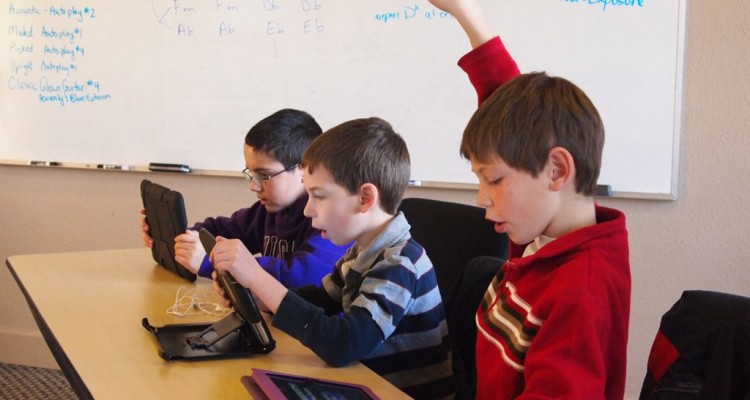Although we have grown accustomed to seeing young children carrying iPhones and iPads wherever they go, the potential risks of overexposure must be considered given that children are in a state of constant development. The American Academy of Pediatrics has recommended that screens be avoided completely for infants and children under the age of two years old. Considering that the majority of the discussion regarding whether parents rely too much on technology to occupy their children was focused on the convenience it serves for the parent, it seems to me that people are just looking for an excuse to use technology to make their lives easier and in turn, are disregarding the potential damage that is being done to their child’s development.
Given the rise in popularity of educational applications or online games for young children, there is a definite decline in parental guilt, but in no way is the lack of guilt justifiable. Despite there being beneficial and educational elements of technology, the fact that parents have to be reminded to limit the amount of time that children under the age of two spend in front of a screen astounds me. I realize that it would be naive to pretend that children can fully escape technology given how deeply embedded it has become in all of our lives, but such a high level of exposure for children under the age of two is certainly unnecessary given that unhealthy doses of exposure serve more to harm development than to improve it.
Infants and young children are constantly forming new connections and the connections built depend heavily on the type and amount of stimulation they are receiving. Therefore, I consider it crucial that parents, rather than screens, create authentic interaction and stimulation. While an iPad may teach a toddler how to count, it cannot replace the ability that a parent has to teach a child necessary social skills.
By focusing at a young age on activities outside of the technological realm, children will become less dependent on technology and find alternative ways of interacting with the world around them. This cannot be sacrificed based on parental convenience. Knowing that you can censor and control content may provide parents with a sense of comfort thinking that the problem solved. However, these issues are still very real and by enabling children to become dependent on technology, we are preventing them from living independent lives.
According to The American Academy of Pediatrics, “Today’s children are spending an average of seven hours a day on entertainment media, including televisions, computers, phones and other electronic devices.” The association goes on to recommend that parents should tighten their children’s “media diet” down to one or two hours of “high quality content.” Although the idea of restricting media intake to a daily two hours seems unpleasant, parents should consider that their children are going to have a lifetime of staring at a screen. Computers are ever present in homes and schools so it is important to really examine how much time is being spent and make it a priority to reduce usage.
By teaching children healthy technology habits when they are young, parents are setting them up for more positive media use in future and will need to spend less time restricting them. Additionally, I am certain that by implementing more restrictive attitudes towards technology, children will benefit mentally, physically and socially over time. Time spent playing on an iPhone is even less time spent playing outside, or interacting with other children and adults. We need to all learn to interact with people rather than pixels because ultimately. Life is too wonderful to surrender to screens.


Leave a Reply